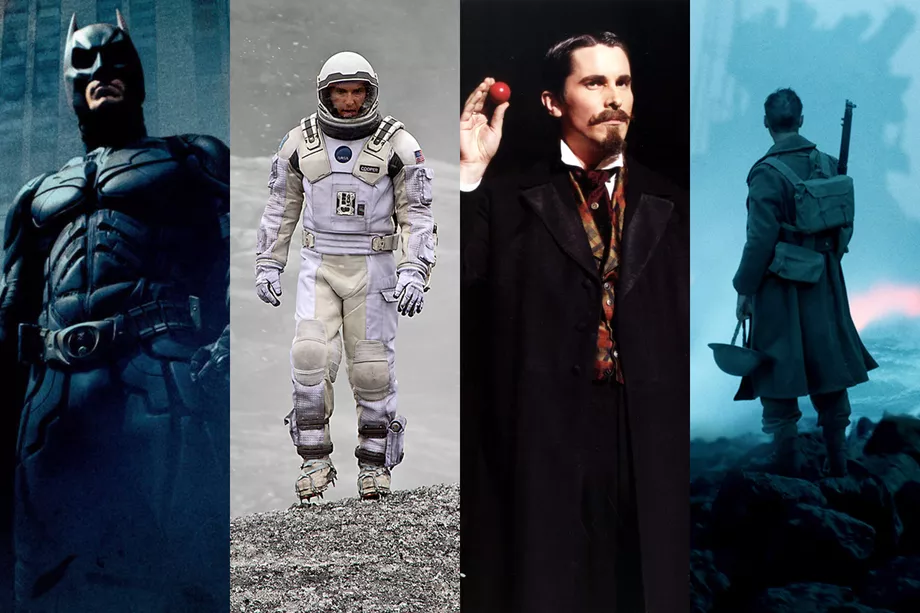Reviews of Christopher Nolan’s Dunkirk (including mine) are calling the movie the director’s best work so far — the Village Voice’s Bilge Ebiri says it is the “movie Christopher Nolan was born to make.”
High praise, indeed. But what does it mean to say that a movie is a Nolan masterpiece? What makes Nolan distinctive as a director? And how does Dunkirk — a movie about a historical event, not normal fare for the director — fit into his most distinctive interests? Plenty of things mark Nolan’s work, some of which make him beloved to his fans and others that raise eyebrows. He’s sometimes dinged for making films that are too clinical, light on character development, largely uninterested in female and non-white characters except as props for the protagonists, and marred by their director’s private obsessions with time and trickery.But while some of these criticisms have merit, it’s hard to dispute that Nolan is an important director, one who’s managed to find a way to make big-budget movies that people want to talk about, dissect, and revisit after they’ve seen them.
Dunkirk in particular leans hard into Nolan’s interests as a filmmaker, but with a twist that works to the historical story’s advantage. Here are four things to remember about Christopher Nolan’s films that help position Dunkirk in his larger body of work.
He’s very interested in time
Particularly in movies like Inception, Interstellar, Memento, and his 1998 debut feature Following, Nolan likes to mess with the ways we’re conditioned to think about time, particularly at the movies, where we expect a relatively straightforward progression of time that mirrors real life: Start at the beginning, proceed in an orderly fashion, and end at the end.
So frequently, what you’re seeing in a Nolan film feels like it’s chronological, and then you get to experience the thrill (or maybe annoyance) of realizing that what you assumed about the movie isn’t true: These two scenes don’t follow each other logically, or that event actually happened at a different time. It’s usually not just a neat trick, but rather an integral part of the storytelling. You’re supposed to suddenly feel dislocated, realizing that all of your assumptions about the world are a matter of perception.
One of the key features that sets Dunkirk apart from other war films is how it treats time: The movie moves along three separate planes of time, which it lays out right at the beginning of the film and cuts between throughout. We observe one set of characters over the course of a week, another set over a day, and another set over just an hour. The film itself is only about two hours long, which means “time” is moving much more quickly for some characters than for others.
He’s also very interested in memory
Most of Nolan’s films (many of which feature screenplays by his brother, Jonathan) explore big philosophical concepts, and none of them attempt to offer concrete answers. But whether he’s making science fiction, a crime drama, a superhero film, or a war movie, Nolan is remarkably consistent in his favored themes.
One of his most clear interests is memory: how it works, how it gets corrupted, and how our memories shape and even create what we consider to be “reality.” Two of his films — 2000’s Memento and 2010’s Inception — are the most explicitly interested in the topic. In Memento, the protagonist (Guy Pearce) is literally suffering from a form of amnesia that leaves him without a short-term memory, and both his and the viewer’s perception of what’s “real” are affected by that condition. In the considerably higher-budget Inception, the protagonist (Leonardo DiCaprio) is trying to implant memories into someone else’s subconscious, and the nature of memory drives the plot.
In Dunkirk, the role of memory is subtler than it’s been in his other films. The memories of battle experiences, which seem to have settled more in the soldiers’ bodies than their conscious minds, certainly affect how they act under siege — how they duck for a bomb, or react to enclosed spaces.
Nolan subverts the conventions of familiar genres in order to challenge our ideas about movies
Though he started with small, low-budget thrillers like Following and Memento, Nolan rapidly became a blockbuster director. Nolan’s evolution into a maker of big, plot-driven films reflects his interest in getting moviegoers to revise their expectations about what a popular, successful, big-budget movie can be.
One of the most effective ways he does this is by taking popular genres (mysteries, thrillers, sci-fi, superheroes, war) and rethinking what they can do. This is something he shares with filmmakers like Quentin Tarantino, Paul Thomas Anderson, and the Coen brothers, all of whom also love film, study the history of cinema, and want to move it forward by seeing what kind of new tricks old genres can pull off.
But when Nolan takes on a new genre, lots of people get excited, for good reason. His track record shows that a director with a distinctive style who’s given leeway by the studio to deviate from the norm can make a crowd-pleaser that brings in the big bucks at the box office and also lands critical accolades — whether it’s by reimagining comic book movies as political commentary (in the Dark Knight trilogy), sci-fi as quasi-post-apocalyptic family drama (Interstellar), or detective noir as psychological drama (Insomnia, Memento).
Nolan’s movies tell exciting, intriguing stories in popular genres, but science fiction films, superhero films, and war films all become something slightly different in his hands. Dunkirk is no exception; it’s certainly a historic war film, but its take on time and space through its multi-threaded storyline makes it something more universal and more distinctive at the same time. It seems to draw on fantasy epics as much as films like Saving Private Ryan — and that twist is vintage Nolan.


